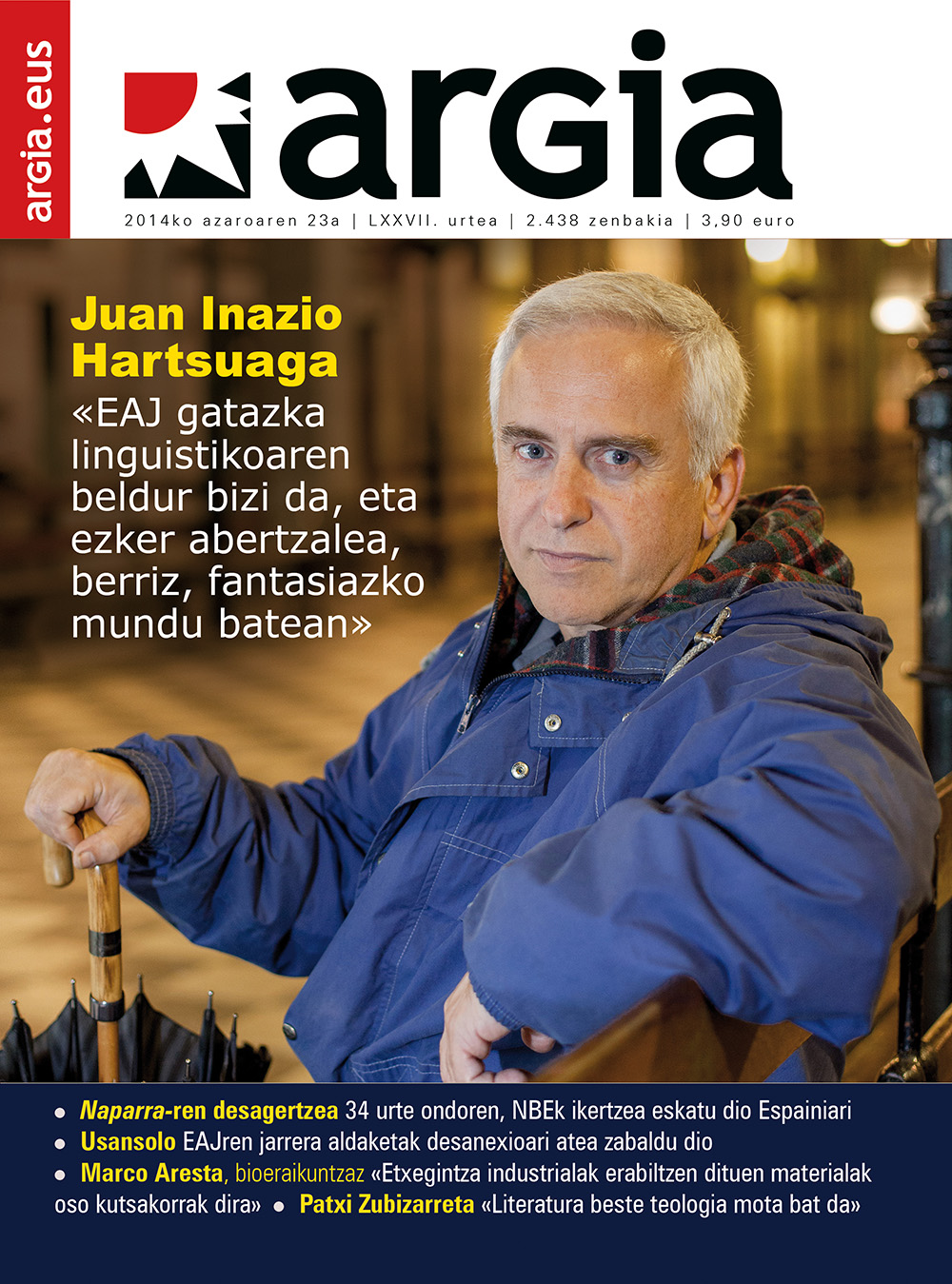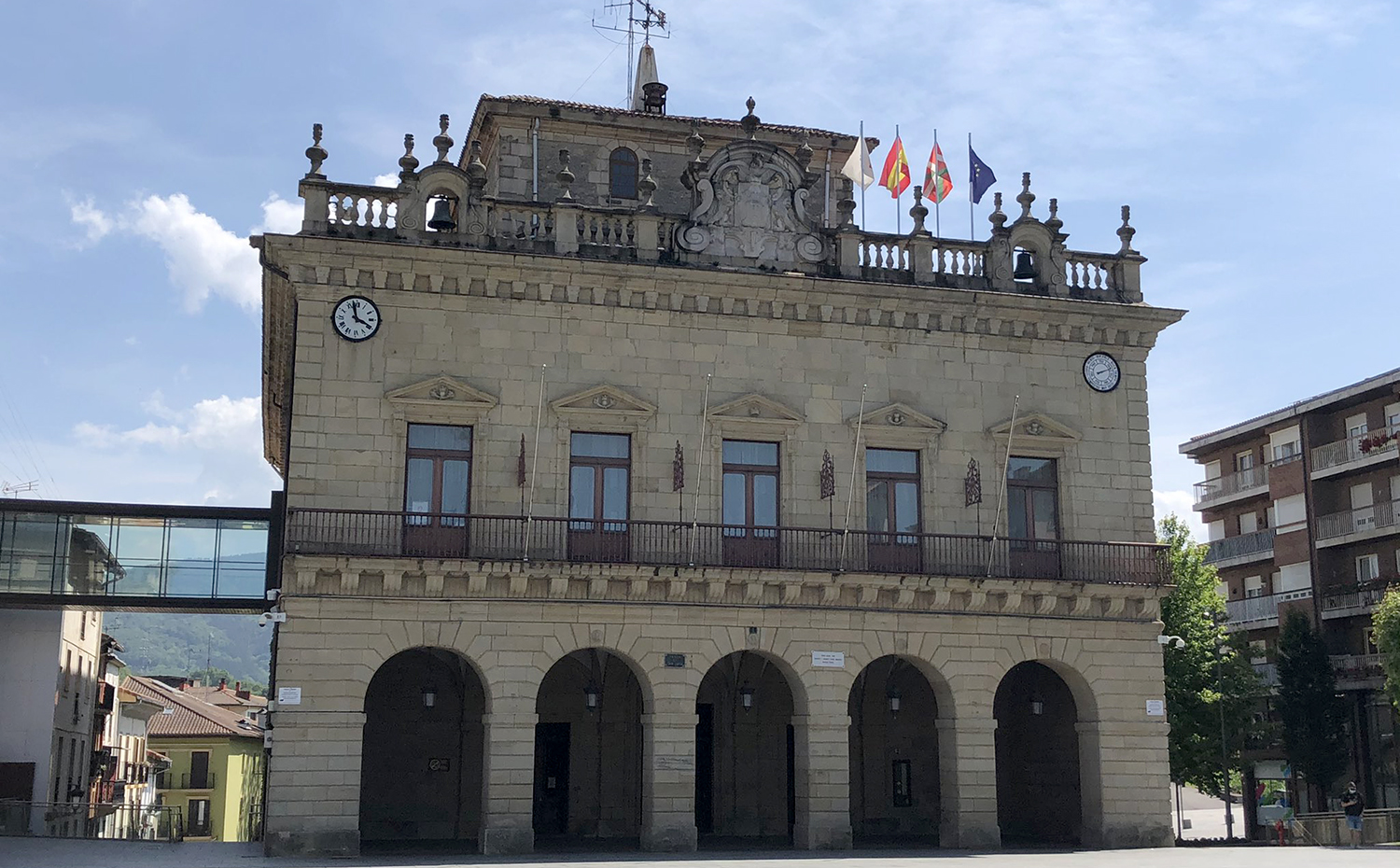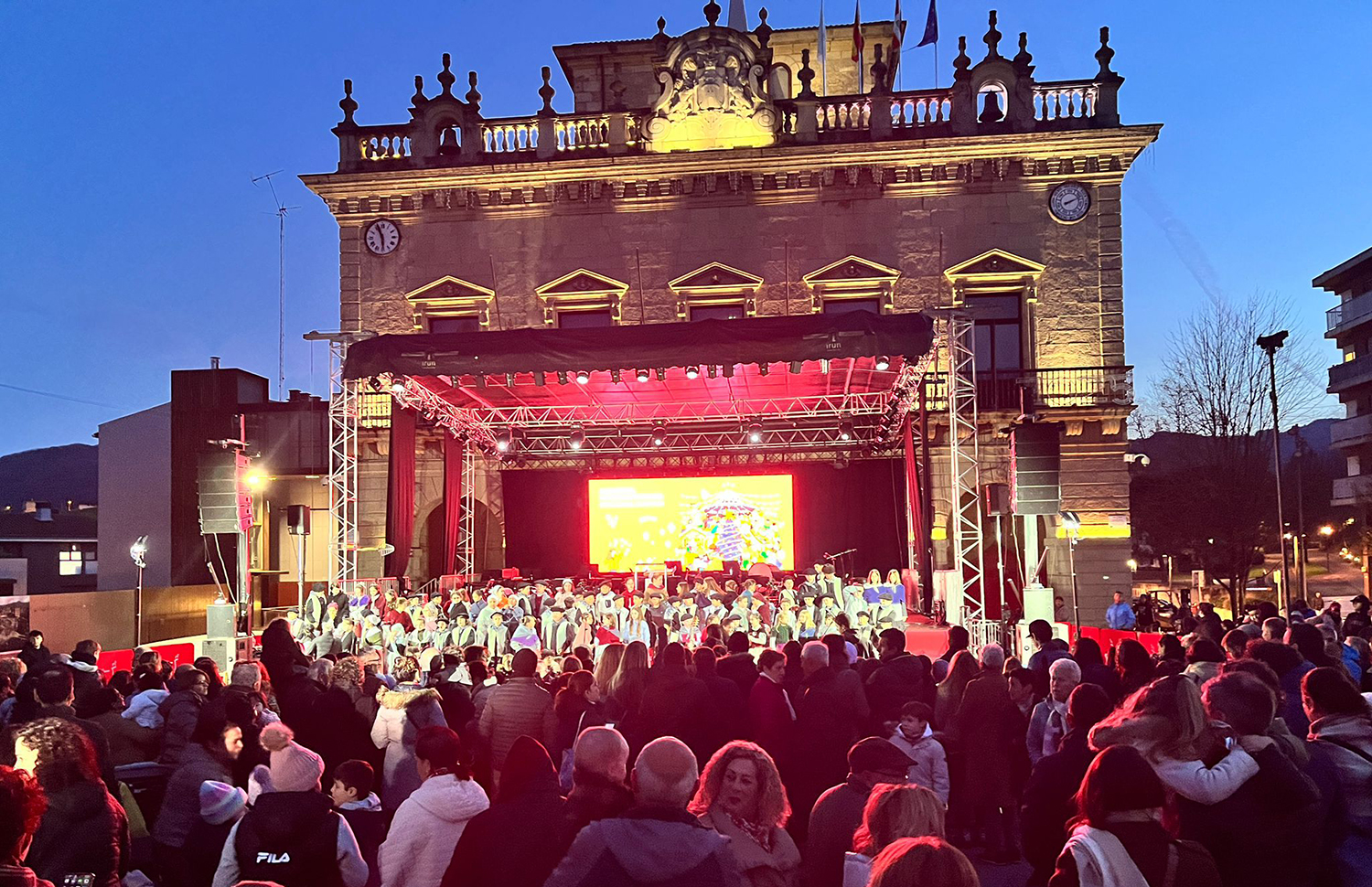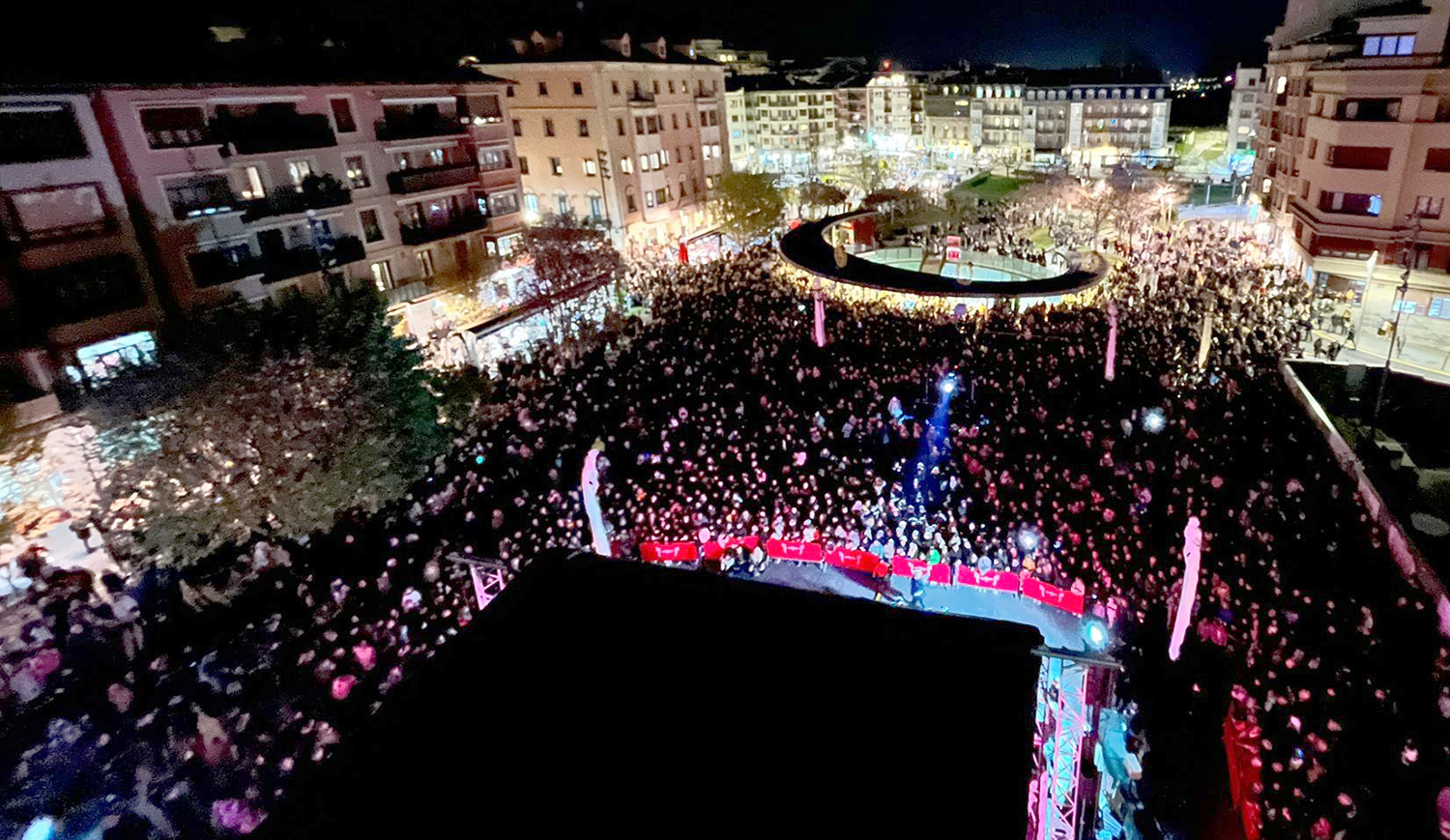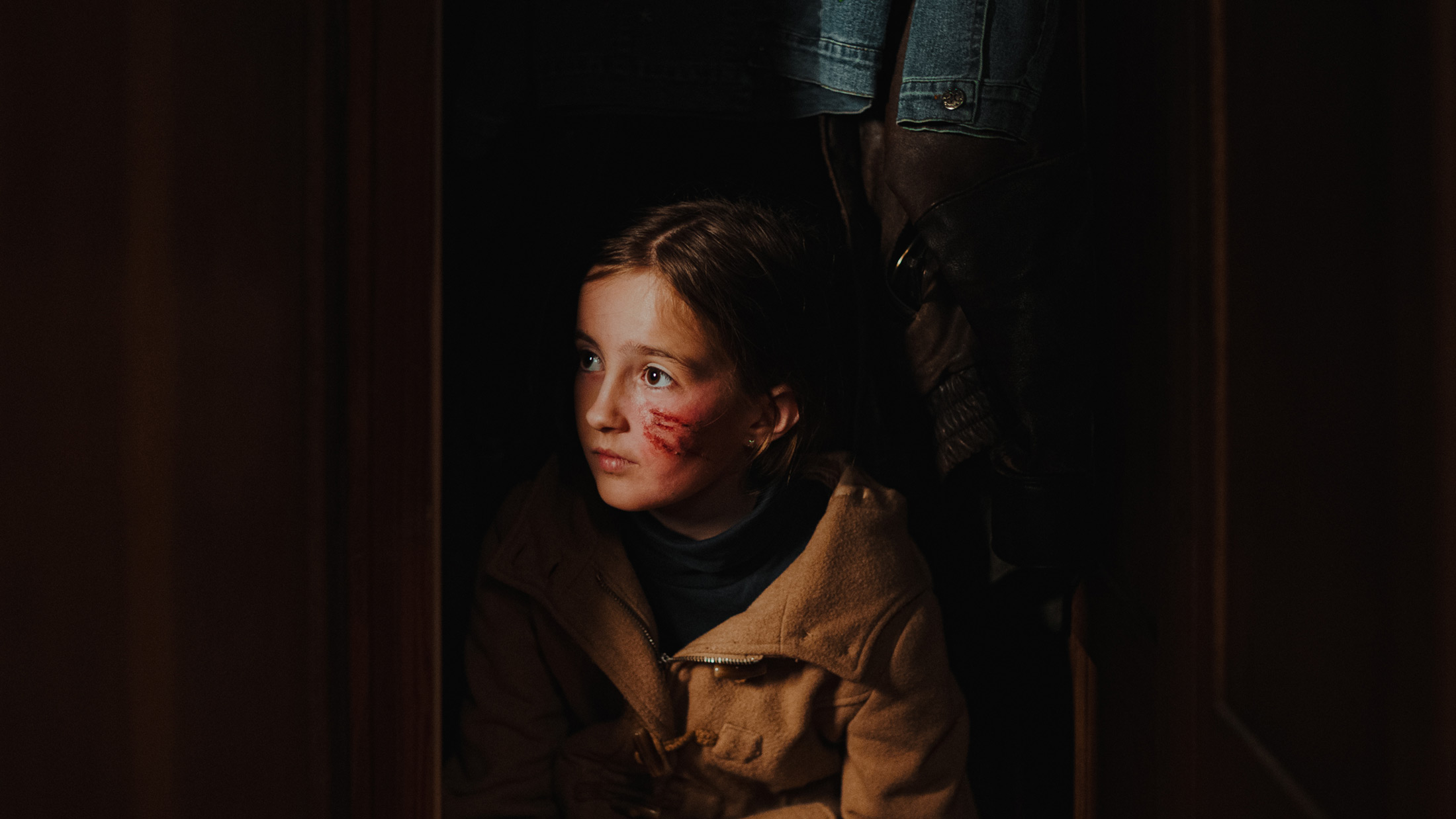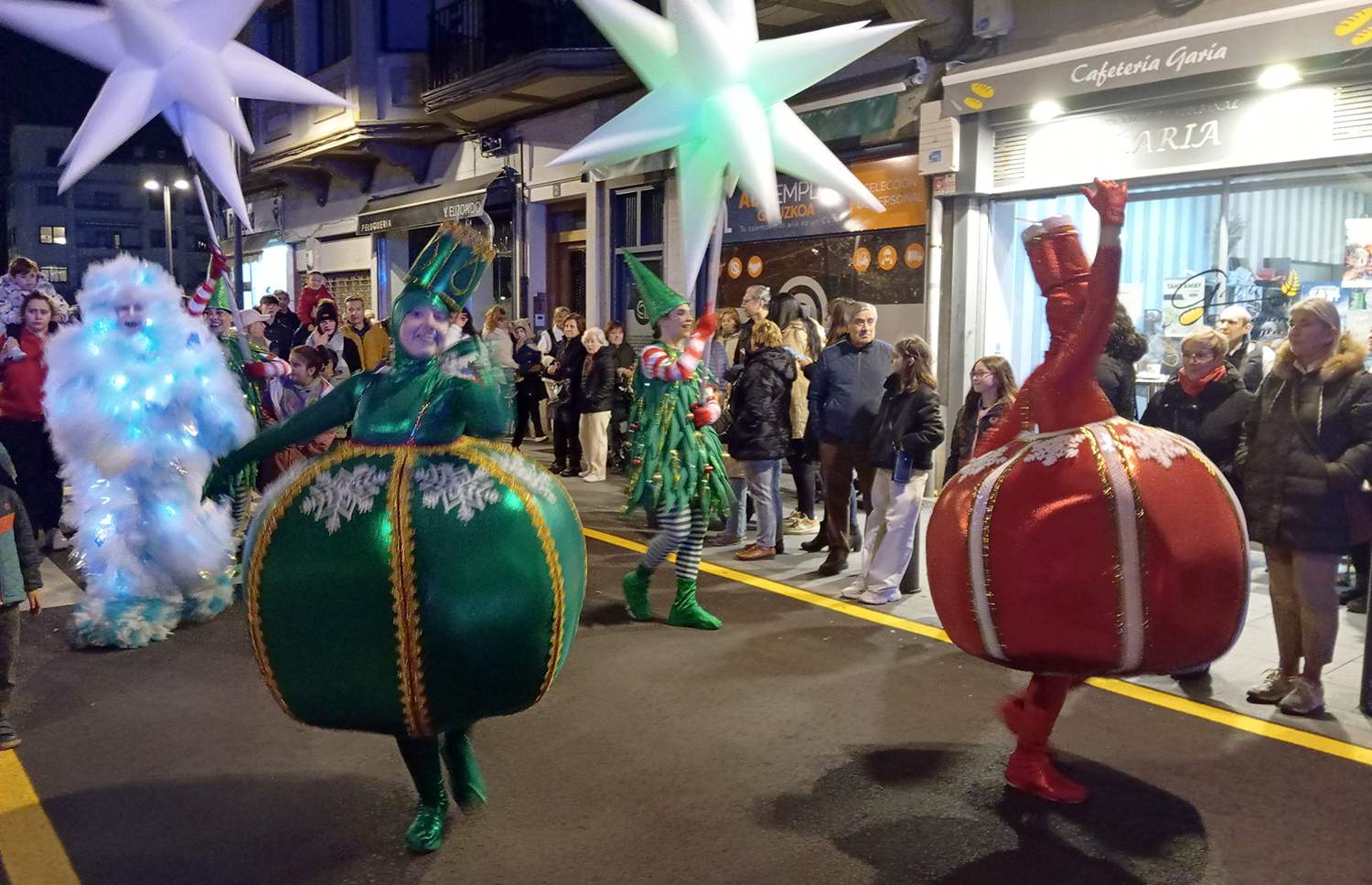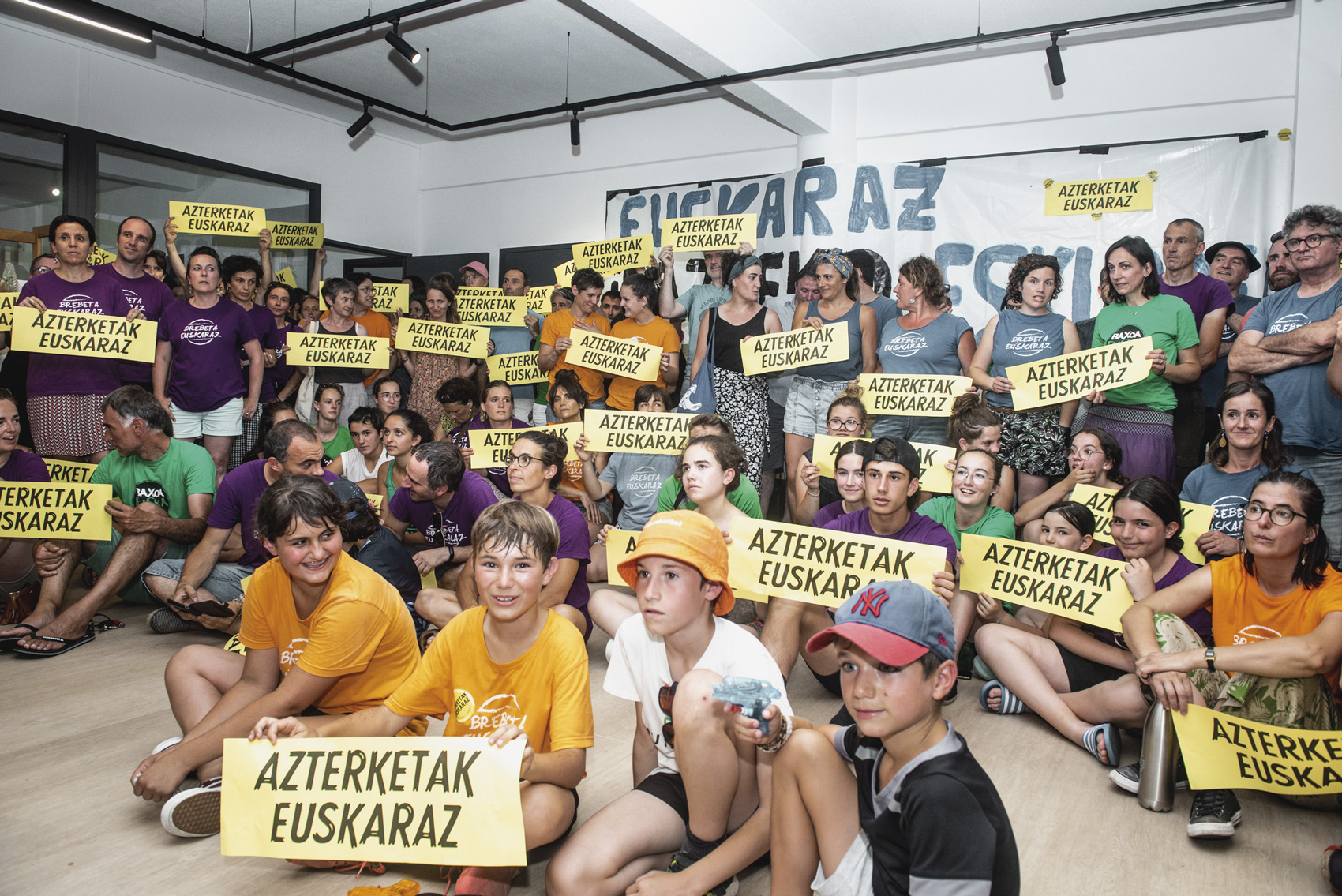"Euskaltzaleok, a master of resistance and one of the great streets"
- Hartsuaga is a critical anthropologist who proposes to speak in Basque without complexes and with pride and update the ideology that hosts the old myths.

Are you Euskaldun zaharra?
In this environment it has been very normal not to know Spanish at 5 years of age and at 14 not to know Basque. Not as much as I do, but almost. One day I was very intimate, that I was about 14 years old, that for the first time we had to start in Spanish at home, because we couldn't talk about a deep topic. We can't either parents or us. And how bad we all feel. Ours was a very limited language, not as rich as the real Euskaldun of older age. It served for home, but not for more. I renovated myself at the age of 18-20. Here we had the best sermoneros in Tolosa: Joseba Intxausti, Joan Mari Torrealdai… and many people went to Mass to hear how well they did in Basque.
He studied Business at the University of Deusto in San Sebastian. What and the thesis related to Euskera?
I made a thesis called “Marketing Plan for the Basque Country”. It was never published because marketing plans are not published. They are put into practice to be effective. I wanted to start it and, as has happened to me on other occasions, I stopped at the center. Nobody liked my plan, neither those in power, nor those of the opposition, and there it was. They gave me a prize in the Deputation and fired me.
Why hadn't anyone liked it?
The criteria for drawing up the plans were those that had been met there. The key was that we had to change from focusing on knowledge to use. It's been 35 years and we're still the same. The PNV has always lived with the fear of linguistic conflict. On the other hand, the Abertzale left in the opposition had at that time a more bureaucratic point of view and, for example, had contributed to extending the network of Basque technicians to all the peoples. They had a strategy for building structures. Today, the PNV continues to focus its attention on internal transmission (and blaming immigrants from outside without realizing the loss of the Basque country).Its main dogma is that the Basque country must be saved from domestic transmission. Nothing can be said on the street because the Castilian speakers should not be disturbed. Thus, for example, they cannot clarify why in the houses where there are Basque fathers and mothers in Ataun the Basque is becoming less and less.
The Abertzale left, for its part, has started to live in a fantasy world. Their myth is that the Basques are very Basque. That's what follows from Txillardegi's mathematical model of 40 years ago, but no one understands it, no one knows it, but they defend it as a sacred relic. Live us and ours. We have suffered a great deal, everything is against it and we do enough with what we do. But then you see that the number of Berria's readers hasn't grown in years or you see the audience data from ETB or the Spanish that's heard in the village bars and it's very disappointing.
Why do you think the use has been reduced?
Because there is no Basque in this town. In the apples that are marching and that have given the new branch, some do not want to see more than this beautiful branch and not the whole tree.
What do we do?
So far we have had one element that we have not appreciated very well: the essential Basques. These were farmers, monolingual Basques. They did the function of yeast. They entered the middle-aged Euskaldunes and put them all in Euskera. When the monolingual Basques have disappeared, we have run out of yeast and we have to look for a new yeast. That can now only be an Euskaltzale. He knows Euskera and other languages, but he has chosen Euskera in his life.
What's that yeast going to do?
If you speak in Basque wherever you go and answer in Basque to the Euskaldunes who speak in Spanish, people know that they have to speak in Basque with you. The level of quality of the language has also fallen dramatically. This has its roots in the old complexes. Above all in the sociology of Bizkaia the Basque Country has always been considered a very poor thing.
What is the Facebook group in Basque on the Ladder?
A space for Euskera to be progressively imposed in the public space. The first public space when you leave the house is the staircase. In Tolosa, seven out of ten localities are Euskaldunes and yet no one dares to speak in Basque at the meetings of the stairway. My proposal is to create a forum to help anyone who wants to speak in Basque and then make known those small victories. I put it on Facebook because in Tolosa I have not managed to involve the Basque people here. Maese in resistance and failure in leadership. That portrays us. I am radical, not fanatic, and very practical. We have very interiorized that we have always been losers and we need a certain civil domain and a certain pride to be able to tell the Castilanospeakers: “This is our territory, and if you don’t understand it is your problem.” But for that we should do hypnosis or have Basque television in Euskaltzale.
Do you join the philosophy “I want to live in Basque”?
Yes, of course. And in addition, all of that is legally protected. Here the CAV Basque Law says you can speak in Basque wherever you want. But that's not enough. Then you have to put campaigns, programs, means… to bring all of this to reality. And that is the trap of the PNV: it has made very good laws that are admired from Europe and everywhere, but which remain on paper.
She was the director of the Observatory on Linguistic Rights for a year. Why so little?
Yes, in 2004, until I was kicked out. As soon as I arrived, I started to look at the legal framework. I found some things that no one knew in the Council, such as that officials of the Gipuzkoa Council of Foreign Ministers had banned asking someone to speak in Basque in Spanish. That's what the PNV did without telling anyone. Only in the newsletter. So I asked EHE to campaign to spread that law existed in the court of the Foral Council, so that the Basques would increasingly exercise their right without fear and the answer was no, if I had gone crazy. Of course, some could see this as a confession that the laws were doing well. The reason I was given when I was kicked out was I was in a bad mood.
He studied linguistics and anthropology in Paris. What is mythology?
Previous response. Explanation for not generating questions. An environment that explains everything so you don't get questions. The myth shows you what the world looks like. Attitude contrary to science. You can call it myth, doctrine, religion -- it's the same thing. I'm not a mitocyst, I'm a mythical scholar.
A kind of myth restorer?
Yes. Just as iron is oxidized, it is also necessary to see in the oral narratives how things have been added or modified in their origin and on the way. We have little left of the Paleolithic. The basis of our mythology comes from the Neolithic, and in it we find two main cycles: that of time, that of Mari, and that of death and life, that of the Gentiles. Mari's comes from those who invented agriculture and brought it here. It has been very widespread from Turkey and across Europe and Asia Minor. We have kept it very well until recently, because we have been very conservative, but it is a very widespread myth. Mari has no Basque label. It is related to time and, therefore, to the economy. It is a very daring attitude. When in the Neolithic man invents agriculture and livestock, he looks above nature. It feels great superiority and it also tries to control time. Mari is the personification of time and the people strive to control it.
Isn't she a goddess?
No. Because it's not a higher being stronger than men and it has an end for men. He has later touched several touches of divinity, but that is something new. At first his relationship with him was not like with the gods. He was not asked for anything, nor was he pleaded for forgiveness. It was an observation based experience. When Mari was on a mountain like that, the weather was good, while on that mountain there was a bad time. Therefore, human beings undertake two types of initiatives: Where it is convenient for Mari to be, a pilgrimage is made, so that he can rejoice and stay in a festive atmosphere and, at the same time, sent to the priest to close the door of the cave. Mari does not conjure himself. The spell is not going against him. What consents the cure is the porch of the cave not to enter or leave it.
The second cycle is born about 1,000 years after the arrival of agriculture. A culture of its own which does not come from outside and which also spreads very quickly throughout Northern Europe: the culture of the dolmens. And that's the culture of the Gentiles. This is the cycle that gives models to life and death. The dead begin to be at the centre of religious life and invent work as a concept. We are here to work. This culture was later exported to other places: To Greece, to Egypt… In Northern Europe the vestiges of the giants’ culture are still very alive and in Southern Europe, even if there are some vestiges, it is seen that the thing was imported and has never been so entrenched. The main part of our ideology is the one that shows us the mythology of the Gentiles.
What exactly is that ideology?
For example, the Gentiles are workers, honest, strong, but not violent. There are no models of aggression. They use the force to work, and if one day they get very angry with someone, the biggest attack they do is to fill their field with stones. They love solidarity and they love rigour. It was often said that they were better Christians than Christians. Likewise, in Norway or in the Faroe Islands of Denmark it is said “as honored as the Gentiles”. This mythology of giants has been better preserved against the sea: In the Basque Country, in Ireland, in the Netherlands, in Germany and in Scandinavia. Our cultural relatives are from Northern Europe. We live a certain distance from the Romans and have been acquiring other values from the neighborhoods of the area, slowly forgetting what we are. I find it very interesting to identify what our elements are and what we don't, and who our ideological cousins are. The Dutch model of elderly care is based, for example, on communal work. We have gone from Caserío Gurea to the street and from Euskera to Castilian and on the way we have lost many things. Last year, I published these issues in an electronic book. This is a brief history of ideas and values that can be found free of charge on the Internet. Even though it wants to be legible, it may still be too specialized for some. That’s why I’m preparing another one that will be shorter and simpler (40 or 50 pages) and that will have links here and there for anyone who wants to go deeper into it. It will be called our personality.
There are many people who feel very satisfied with the characteristics of the Spanish and the Spanish. That is where I see the urgent need for clear references. The greatest involuntary effort to open the pasodouble was made by Kaxiano. That's how things get in, not realizing it. All of this is important to look to the future, to think about what path we want to take. We can be Euskaldunes what we want, what we decide. I don't want to be a Basque Neolithic.
Juan Inazio Hartsuaga Uranga, 1957ko urriaren 27an Tolosako Berdura plazan jaioa. Enpresa Zientziak ikasi zituen Deustuko Unibertsitatean Donostian, Euskal Filologiaren lehen bi urteak eta Linguistika eta Antropologia Parisko Ecole des Hautes Etudes zentroan, Joxemiel Barandiaranen aholkua jarraituz. Euskararen orainaz eta geroaz kezkatuta, bere gradu tesina egin zuen: “Euskara zabaltzeko marketin plangintza”, enpresaren ikuspuntutik. Mitologiaren inguruan hamaika liburu eta dozenaka artikulu idatzi ditu, haien artean Euskal Mitologia Konparatua: Jentilen akabera (Gaiak, 2004). Alor honetan doktoretza tesia egin zuen mitologiaren ahozko transmisioa aztertuz.
“Elkartasuna XVII. mendeko Herbehereetako agiri batean sakratutzat jotzen da, eta, hortaz, derrigorrezkoa da. Hemen ez da garbi esaten sakratua denik, baina sinesten da, adibidez, pertsona bat gaixo dagoenean eta meza diruak biltzen direnean, askoren artean emandako diruak sendatzeko indar handiagoa duela bakar batek dena ematen badu baino. Elkartasunak senda indarra du, alegia”.
“Kalte ikaragarria egin du. Soziologia mailan telebista normaltasun fabrikatzailea da. Sozialki galtzaile diren edo onartuta ez dauden portaerak normaltzeko telebista beharrezkoa da: emakumeen aurkako bortizkeria, homosexualitatearen inguruan… Euskaltzaletasuna sustatzeko eta euskaldunen beldurrak, lotsak eta konplexuak gainditzeko telebistak egin dezake lan hori, baina kontrakoa egiten ari da. Larriena ETB2 da. Orain euskaldun jator ikur guztiak ETB2ra pasa dira eta zabaltzen ari diren mezua da ‘izan zaitezke euskaldun jatorrena erdaraz jo ta ke arituz’”.
“Jendeak ez daki non sortu zen, zertarako zen, zer den zaharragoa, zer berriagoa. Modu bat behar da bilatu hori dena zabaltzeko. Nik proiektu bat egin nuen katedra bat zabaltzeko eta Ataunen parke tematiko moduko bat egiteko, baina ez Euro Disney bat. Agian inuzenteegia naiz, baina instituzio guztiak elkartuta egin nahi nuen. Ideologien jarraikortasuna erakutsiko zuen esperientzia eskaini nahi nion jendeari. Ez zen modurik izan politika kontuengatik eta nik ilusioa galdu egin nuen”.
“Gotorlekurik onena hori da: irizpide antzekoak ditugun euskaltzaleak hor bil gaitezke elkarrekin egoteko eta ekimenak aurrera eramateko. Internetengatik ez balitz oso pesimista nintzateke”.
Gabonetako argiak pizteko ekitaldia espainolez egin izanak, Irungo euskaldunak haserretzeaz harago, Aski Da! mugimendua abiatu zuen: herriko 40 elkarteren indarrak batuta, Irungo udal gobernuarekin bildu dira orain, alkatea eta Euskara zinegotzia tarteko, herriko eragileak... [+]









